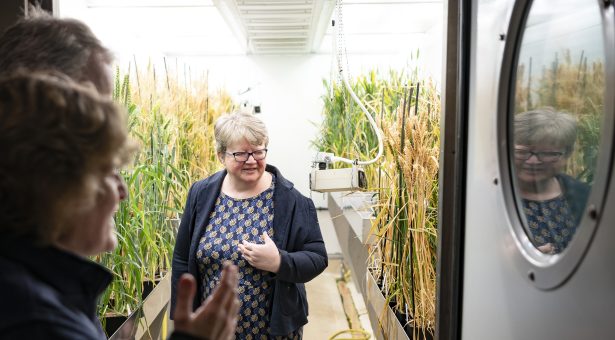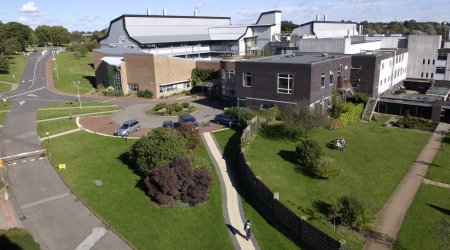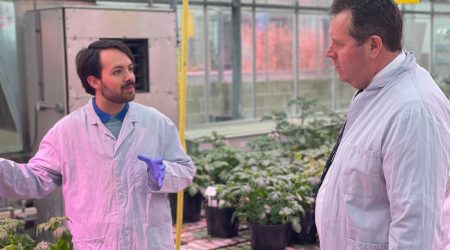Defra Secretary of State visits John Innes Centre

Secretary of State for Environment, Food and Rural Affairs the Rt Hon Thérèse Coffey visited the John Innes Centre in Norwich to learn more about the world-leading research that is delivering healthier, more resilient and more sustainably produced food.
The Defra secretary met researchers Professor Wendy Harwood and Dr Penny Hundleby in the Crop Transformation Unit to discuss the importance of new breeding technologies, such as genome editing, to complement current plant breeding and speed up improvements to major crops such as wheat and oilseed rape.
New legislation introduced under the Genetic Technology (Precision Breeding) Act means that these technologies can be used in the UK to produce crops that are more nutritious, disease resistant and climate resilient. During the visit Dr Coffey and JIC scientists explored some of the opportunities presented by this legislation to improve our food security without compromising UK food and environmental standards.
Secretary of State for Food and Farming Thérèse Coffey said “The amazing team at the John Innes Centre are leading the world in breaking new ground on crop research.
“The government’s new Precision Breeding Act means that researchers here in Norwich and around the country will have the tools they need to ensure we have a resilient and sustainable supply of homegrown food for decades to come.”
The Secretary of State’s visit also included a short tour of the John Innes Centre’s Horticultural Services facility – currently undergoing a programme of major modernisaton – and the Germplasm Resources Unit, a unique resource of seed and germplasm collections used by crop researchers and breeders nationally and internationally based at the John Innes Centre.
Professor Anne Osbourn (FRS) Deputy Director of the John Innes Centre said: “It was a pleasure to welcome the Secretary of State and explain how the research of the John Innes Centre uses the latest technological advances to addresses global health and environmental challenges.”


